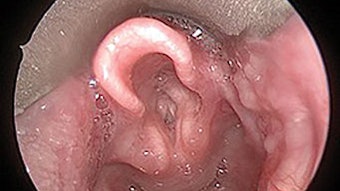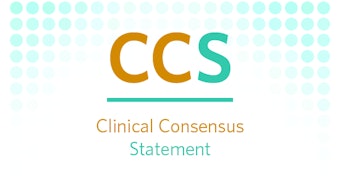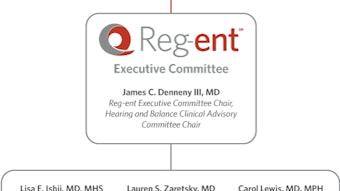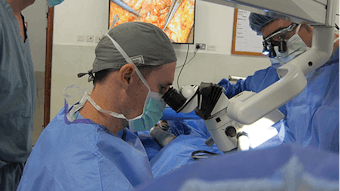From the Education Committees: Cancer Immunotherapy Update
Immunotherapy has the capability of restoring a patient’s own anti-tumor immunity as a means to target cancer. The emergence of checkpoint inhibitors in recent years has promoted immunotherapy as a major breakthrough in cancer therapy. Checkpoint inhibitors have revolutionized treatment of advanced head and neck cancer (HNC), known to have a poor prognosis and low survival rate.
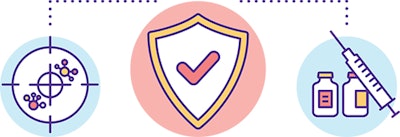
Larissa Sweeny, MD, and Nicole C. Schmitt, MD, For the Head and Neck Education Committee
Immunotherapy has the capability of restoring a patient’s own anti-tumor immunity as a means to target cancer. The emergence of checkpoint inhibitors in recent years has promoted immunotherapy as a major breakthrough in cancer therapy. Checkpoint inhibitors have revolutionized treatment of advanced head and neck cancer (HNC), known to have a poor prognosis and low survival rate. When pembrolizumab was approved by the U.S. Food and Drug Administration (FDA) for treatment of refractory recurrent and metastatic HNC in 2016, it became the first new therapeutic agent for treatment of HNC in a decade.
In 2019 the findings from the KEYNOTE-048 trial, a phase III clinical trial, established pembrolizumab as a first-line therapy for patients with unresectable recurrent or metastatic HNC. The trial found for tumors with a PD-L1 score of 1 or greater, patients responded to single agent pembrolizumab, with superior overall survival compared to combination platinum, 5-FU, cetuximab regimens and with fewer adverse events.1 Another significant finding from the trial was that pembrolizumab plus platinum and 5-FU had better overall survival regardless of PD-L1 status compared to the combination platinum, 5-FU, cetuximab regimen.1
These findings led to the FDA approval of pembrolizumab as a first-line agent in the treatment of recurrent or metastatic HNC with a PD-L1 staining score of 1 or greater. For patients with a lower PD-L1 staining score, first-line pembrolizumab plus platinum and 5-FU is the new standard.
Pembrolizumab is now under investigation for use in locally advanced HNC and in combination with radiation therapy. With these recent findings of immune checkpoint inhibitors improving survival and reducing toxicity, their use in earlier stage disease and deintensification has great potential. Here are some highlights of exciting new avenues for immunotherapy in our field:
- The COVID-19 pandemic has certainly highlighted limitations of immunity in the elderly, and geriatric patients are often not eligible for treatment with nephrotoxic, platinum-containing regimens. A phase II trial of pembrolizumab + radiation for cisplatin-ineligible HNC showed toxicities comparable to those seen with radiation alone and very favorable one-year survival rates.2
- For patients with high-risk head and neck squamous cell carcinoma who can tolerate cisplatin, immune checkpoint blockade has been added to definitive chemoradiation regimens, with the intent of improving survival. One study adding pembrolizumab to radiation and weekly cisplatin showed good safety and feasibility, with all patients receiving the intended dose of radiation and most receiving the goal dose of cisplatin.3 Two large randomized, placebo-controlled studies adding anti-PD-1 or anti-PD-L1 therapy to cisplatin chemoradiation for patients with high-risk HNC are underway.4,5
- Several “window of opportunity” trials are using checkpoint inhibitors alone or with other immunotherapies prior to surgical resection of HNC, allowing us to better understand responses and potentially improve long-term survival. Three phase II studies have used pembrolizumab or nivolumab in the neoadjuvant setting and along with postoperative chemoradiation in HNC. Pathologic responses were >40%, with some patients demonstrating a complete pathologic response.6-8 PD-1 blockade was well tolerated and did not usually delay the timing of surgery. A phase III study investing neoadjuvant and adjuvant pembrolizumab for patients with high-risk, resectable HNSCC (KEYNOTE-689) is currently underway.
Although we need to await the results of these phase III studies, it is likely that PD-1 checkpoint inhibitors will soon be integrated into standard therapy for previously untreated, locally advanced HNC.
References:
- Burtness B, Harrington KJ, Greil R, Soulières D, Tahara M, de Castro G, et al. Pembrolizumab alone or with chemotherapy versus cetuximab with chemotherapy for recurrent or metastatic squamous cell carcinoma of the head and neck (KEYNOTE-048): a randomised, open-label, phase 3 study. The Lancet. 2019;394(10212):1915-28.
- Weiss J, Vincent B, Deal A, Grilley-Olson J, Patel S, Hackman T, et al. Progression-free survival, overall survival and immunophenotyping outcomes for patients with stage III-IV head and neck cancer and cisplatin contraindication treated with definitive radiotherapy plus pembrolizumab. Int J Radiat Oncol Biol Phys 2020;106(5): P1221.
- Powell SF, Gitau MM, Sumey CJ, Reynolds JT, Lohr M, McGraw S, et al. Safety of pembrolizumab with chemoradiation (CRT) in locally advanced squamous cell carcinoma of the head and neck (LA-SCCHN). 2017; J Clin Oncol 35, 2017 (suppl; abstr 6011).
- Lee NY, Ferris RL, Beck JT, Harrington K, Haddad R, Bourhis J, et al. JAVELIN head and neck 100: A phase 3 trial of avelumab in combination with chemoradiotherapy (CRT) vs CRT for 1st-line treatment of locally advanced squamous cell carcinoma of the head and neck (LA SCCHN). 2017; J Clin Oncol 35, 2017 (suppl; abstr TPS6093).
- Machiels J-PH, Licitra L, Tao Y, Yen C-J, Rischin D, Waldron J, et al. Pembrolizumab plus chemoradiation vs chemoradiation alone for locally advanced head and neck squamous cell carcinoma: The phase 3 KEYNOTE-412 study. 2018; J Clin Oncol 36, 2018 (suppl; abstr TPS6094).
- Uppaluri R, Zolkind P, Lin T, Nussenbaum B, Jackson RS, Rich J, et al. Neoadjuvant pembrolizumab in surgically resectable, HPV negative, locally advanced head and neck squamous cell carcinoma (HNSCC). J Clin Oncol 35, 2017 (Suppl; abst 6012).
- Horton JD, Knochelmann H, Armeson K, Kaczmar JM, Paulos C, Neskey D. Neoadjuvant presurgical PD-1 inhibition in oral cavity squamous cell carcinoma. J Clin Oncol 37, 2019 (suppl; abstr 2574).
- Wise-Draper TM, Old MO, Worden F, O’Brien PM, Cohen EE, Dunlap N, et al. Phase II multi-site investigation of neoadjuvant pembrolizumab and adjuvant concurrent radiation and pembrolizumab with or without cisplatin in resected head and neck squamous cell carcinoma. 2018; J Clin Oncol 36, 2018 (suppl; abstr 6017).


